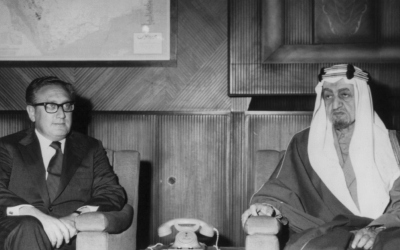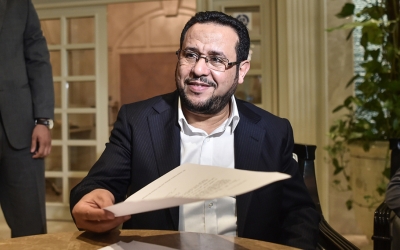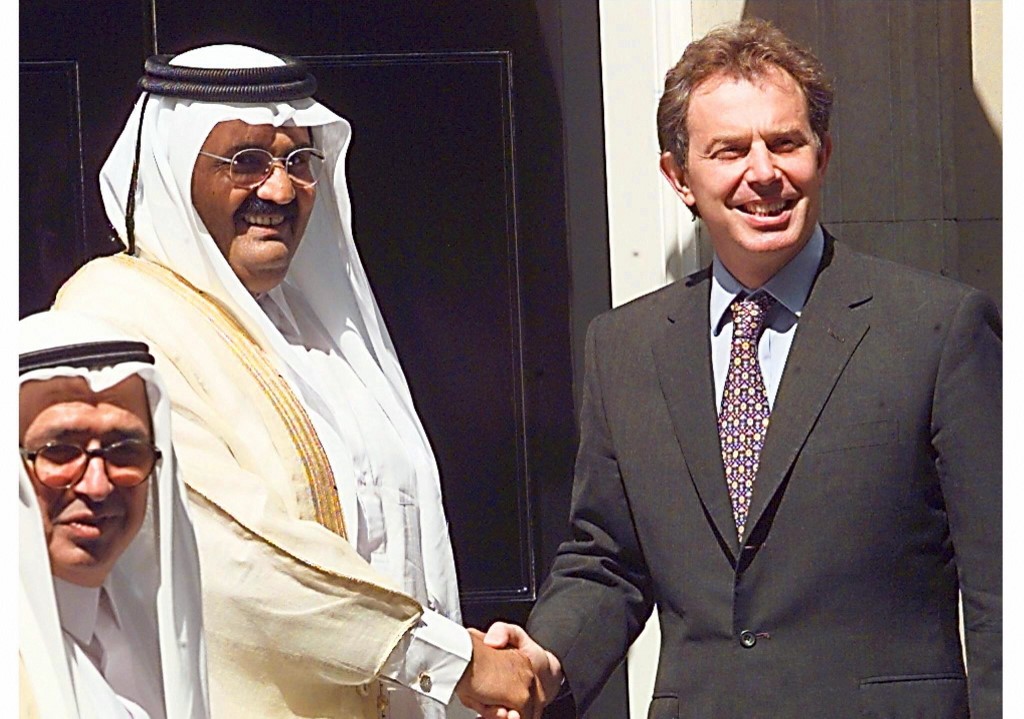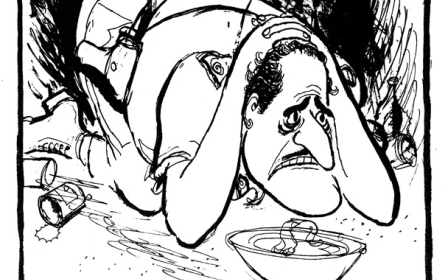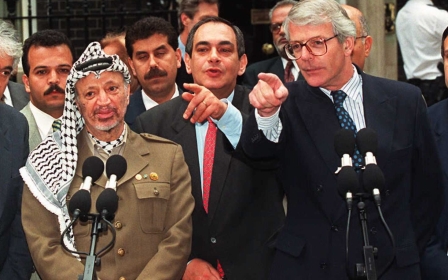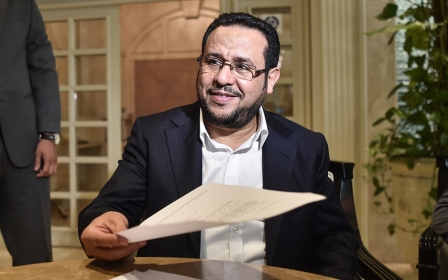'Mubarak is Pharaoh': UK diplomat's scathing assessment of Egyptian leader revealed
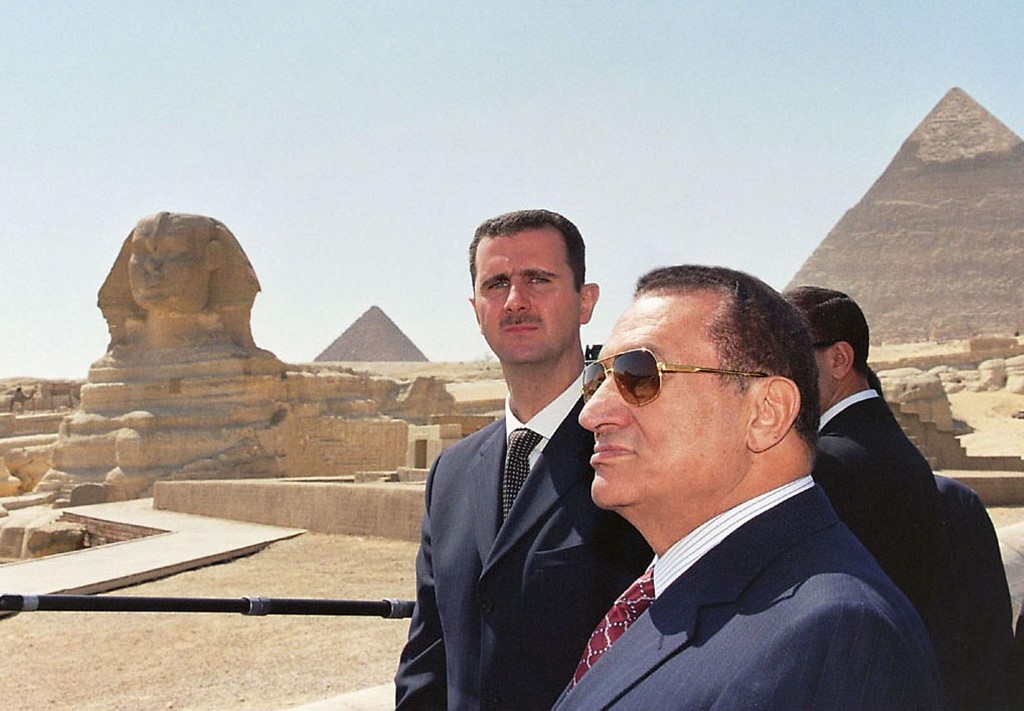
Hosni Mubarak is a “Pharaoh” surrounded by people who “protect him from bad news or unwelcome advice”, the “object of sycophantic adulation” who has "run out of steam and ideas" as “the Egyptian supertanker drifts”.
This is the withering description of Egypt’s long-standing president contained in a secret dispatch from the British ambassador in Cairo contained in declassified files released on Wednesday.
The scathing portrayal of Egypt’s former ruler and the state of the Arab world’s most populous country was sent by the ambassador, David Blatherwick, to the British foreign secretary, Douglas Hurd, in July 1995.
Mubarak is described as sitting on the fence, “fearful of the social and political costs of restructuring in a country where unemployment is already high and underemployment the norm”. Although “his instincts may be for democracy and free speech (except where Mubarak himself is concerned)”, the “reality is paternalistic control, a monopoly of influence and patronage by the government party”, Blatherwick noted.
“The real opposition”, he told Hurd, “comes from the Islamists”.
“Their support reflects economic dissatisfaction… disapproval of fat cats and corruption (which infects the Cabinet and Mubarak’s family) and distaste at the regime’s links with Israel and dependence on the United States”.
Their support reflected “genuine religious feeling and a belief that socialism and capitalism have both failed Egypt”, the ambassador said.
The papers, released at Britain’s National Archives, show how Mubarak repeatedly complained about the presence of “Egyptian dissidents” in Britain. The embassy reported on a visit to London in 1997 by Mubarak’s security chief, Habib al-Adly, and an agreement to share information, including monitoring the “dissidents” in Britain.
But British officials said they had told Adly they needed proof – “allegations in the press will not satisfy our courts”, they said.
Despite their private views of Mubarak, British officials wanted to maintain close relations with him. The British embassy in Cairo reported to London in 1997: “We want to develop a close link with Mubarak not just because of Egypt’s importance to the peace process (which is considerable) but also to cement the growing commercial and defence relationship and the better atmosphere we have worked hard to create on the thorny question of Egyptian extremists in the UK”.
The papers also record Mubarak’s view of Libya’s Muammar Gaddafi as “both as a volatile and unpredictable neighbour and as a bulwark against Islamic fundamentalism in Africa”.
Mubarak ruled Egypt from 1981 to 2011 when he was toppled during mass street protests in what was subsequently called 'the Arab Spring'. He was eventually succeeded as president by the Muslim Brotherhood-backed Mohamed Morsi following free elections, but Morsi was himself overthrown in a coup by Egypt's current leader, Abdel Fattah el-Sisi in 2013.
After successfully appealing against his conviction for failing to stop the killing of peaceful protesters, Mubarak was found guilty of corruption. He died in February this year.
Trade with Gaddafi
The newly released papers also reveal how the British government was privately encouraging exports from the UK to Gaddafi’s Libya even before disputes over compensation for his country’s role in the 1988 Lockerbie bombing and the murder of a British police woman, Yvonne Fletcher, in 1984 had been settled.
Boosting British commercial interests against competitors – notably the French – is a recurring theme behind-the-scenes frequently dominating the country’s relations with Arab countries, the documents make clear.
“The overall performance of British exporters in the Libyan market remains relatively strong”, an adviser to Douglas Hurd, the foreign secretary, told John Major, the prime minister, in 1995.
He warned that a US proposal to extend UN sanctions on Libya to include oil producing equipment “would impact directly on UK exports to Libya likely to have been worth over £240m in 1995, approximately £100m of which was related to the oil sector”.
The official, Dickie Stagg, noted that France was likely anyway to oppose the US move. John Sawers, a rising Foreign Office diplomat who would later head Britain’s foreign intelligence agency, MI6, noted that the American plan was likely to fail and “divide western ranks which would in fact give comfort to Gaddafi”.
In a separate note, Stagg told Edward Oakden, his opposite number in the prime minister’s office, that while any improvement in official relations with Libya would depend on the resolution of outstanding bilateral issues, “we have no reason to discourage British companies seeking business in Libya”.
That was early in 1995. Fletcher’s family did not receive compensation for her death, shot from a window in the Libyan embassy in London in 1984, until 1999 when Gaddafi admitted Libya’s role in the incident.
A $2.7 billion deal for the families of the 270 victims of the bombing of a Pan-Am airliner over Lockerbie in December 1988 was not agreed with Gaddafi until 2003.
Once that was agreed, and the Libyan leader promised to abandon his nuclear and chemical weapons programme, Tony Blair’s Labour government was quick to broker lucrative trade deals with Tripoli – as well as facilitating CIA rendition operations that saw two of Gaddafi’s leading opponents returned to the country to be jailed and tortured.
Coup in Qatar
Elsewhere, the Foreign Office reported favourably on a coup in Qatar in 1995, in which then-crown prince Hamad bin Khalifa Al Thani seized power while his father, Emir Khalifa bin Hamad Al Thani, was out of the country.
“There are potential gains in moving quickly and sounding friendly: there are good prospects for a defence sales package and other commercial opportunities are promising because of Qatar’s vast gas reserves,” it said in a memo sent to Major’s office.
Britain’s defence secretary, Michael Portillo, was sent to Qatar given what the foreign office called the “need to preserve a foothold against the French”.
Britain successfully signed a £600m arms deal with Qatar, including Piranha armoured vehicles, Starburst portable surface-to-air-missiles, and Hawk aircraft, the foreign office reported, according to the declassified files.
British officials noted with pleasure that the new emir’s son was attending the Sandhurst military academy.
So, too, they noted, did the son of Ali Abdullah Saleh, the president of Yemen where the foreign office highlighted the “potential commercial benefits to the UK” from such projects as a planned Aden Free Trade Zone and Port Development but warned of “particularly fierce competition between European firms”.
Elsewhere, foreign office officials reported that the Syrians were “flattered” that Chirac had chosen Damascus as first port of call on his tour of the Middle East in 1996. The clear inference was that Britain should pay more attention to Syria as a prospective export market.
Middle East Eye propose une couverture et une analyse indépendantes et incomparables du Moyen-Orient, de l’Afrique du Nord et d’autres régions du monde. Pour en savoir plus sur la reprise de ce contenu et les frais qui s’appliquent, veuillez remplir ce formulaire [en anglais]. Pour en savoir plus sur MEE, cliquez ici [en anglais].


